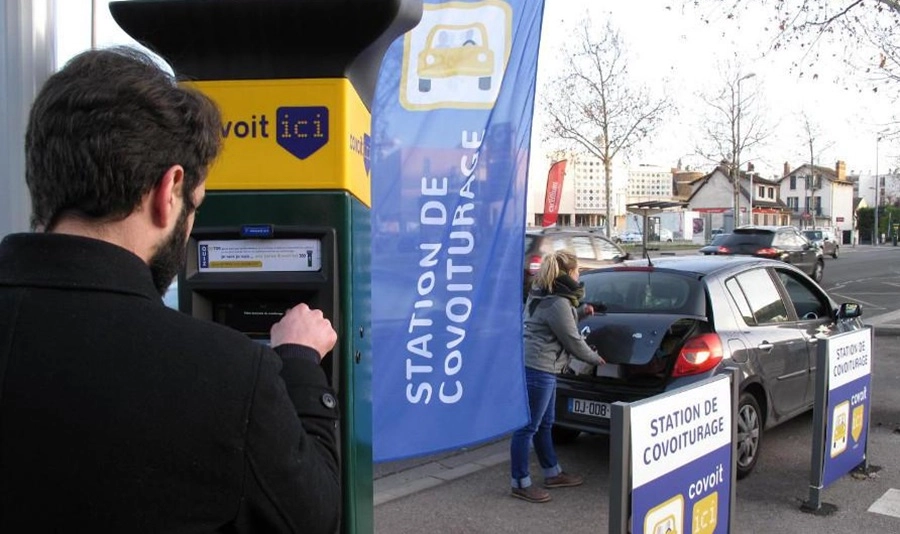Recently, the first anniversary of the National Daily Carpooling Plan (Plan national du covoiturage du quotidien) was commemorated, which the government began promoting since December 13, 2022, with the aim of decarbonizing the transportation sector.
In this context, the Ministry of Ecological Transition and Territorial Cohesion, along with the Ministry of Energy Transition, considered the initiative “effective” based on the results obtained.
Thanks to this plan, which came into effect on January 1, 2023, a total of 40,000 shared trips were made daily throughout the year.
Additionally, during this period, more than 200,000 new drivers participated in the trips.
Regarding the motivations behind this initiative, Christophe Bechú, Minister of the Ecological Transition and Territorial Cohesion, states: “We want everyone to find their solution because ecological transition must be accessible to all.”
Read more: Which EVs qualify for the ecological bonus from the French government?
Looking ahead, government officials have set the goal of tripling the number of daily shared trips to reach three million by 2027.
This way, 4.5 million tons of CO2 per year could be saved, representing 1% of annual emissions.
This project follows the same path as the measures included in the government’s plan to decarbonize the economy under Emmanuel Macron.
It’s worth mentioning that the plan provides a series of incentives to promote carpooling across the country.
Specifically, the legislation considers planned or spontaneous ride-sharing among individuals or through websites or online applications that facilitate connections between drivers and passengers.
In this arrangement, the financial exchange between participants is merely the cost of the trip, making it a way to save some money for users.
According to data from the Ministry of Energy Transition, 70% of trips between home and work are made in individual vehicles, mostly driving solo in a car.
Meanwhile, the proportion of daily shared trips is estimated at 3%.
Thus, the mentioned initiative aims to encourage this habit among French residents to reduce pollution.
Additionally, as a secondary benefit, carpooling helps alleviate traffic congestion in city centers.
But, what are the incentives?
Primarily, for all those commutes between work and home, users receive money to cover expenses.
For private sector employees, the amount is €800 annually, and for public sector employees, it is €300.
On the other hand, those drivers participating in short-distance shared trips receive a bonus of €100 through carpooling platforms.
This payment is progressive, with part delivered on the first shared trip and the rest on the tenth service within three months from the first shared trip.
It is noteworthy that there are several rules to qualify for this benefit.
The resident must have a driver’s license and make ten carpool trips within three months.
Additionally, these journeys must be of a distance less than or equal to 80 km.
Furthermore, one must be an operator of eligible companies: BlaBlaCar Daily, Covoit’ici, Ecov, France Covoit by Ecov, Héléman, Lane, La roue verte, M covoit’, Mobicoop, Mobigo, Mobil’Aude, Ouestgo, onCovoit’, Pass, Pass covoiturage, Picholines, Karos, Klaxit, Star’t, and Ynstant.
An essential detail is that most of these companies offer electric vehicles.
What other benefits for sustainable mobility are there on Macron’s plan?
There are various measures proposed by the Macron’s government to achieve the ambitious goal of carbon neutrality by the year 2050.
One of the prominent political decisions is social leasing, which allows interested individuals to use electric vehicles without paying the total amount of the price.
The fee is usually €100 or less per month, although it can reach up to €150 for family models.
As for the car, it must achieve the minimum environmental score, and its purchase price must be less than or equal to €47,000.
Additionally, the lease period must be a minimum of three years.
On the other hand, the ecological bonus measure is also applied.
It is a financial incentive for buyers or lessees of zero or low-emission vehicles.
Starting in 2024, the amount of this assistance will be €5,000 to €7,000, and it will only be granted to electric cars with a production carbon footprint of less than 14.75 tons of CO2.







